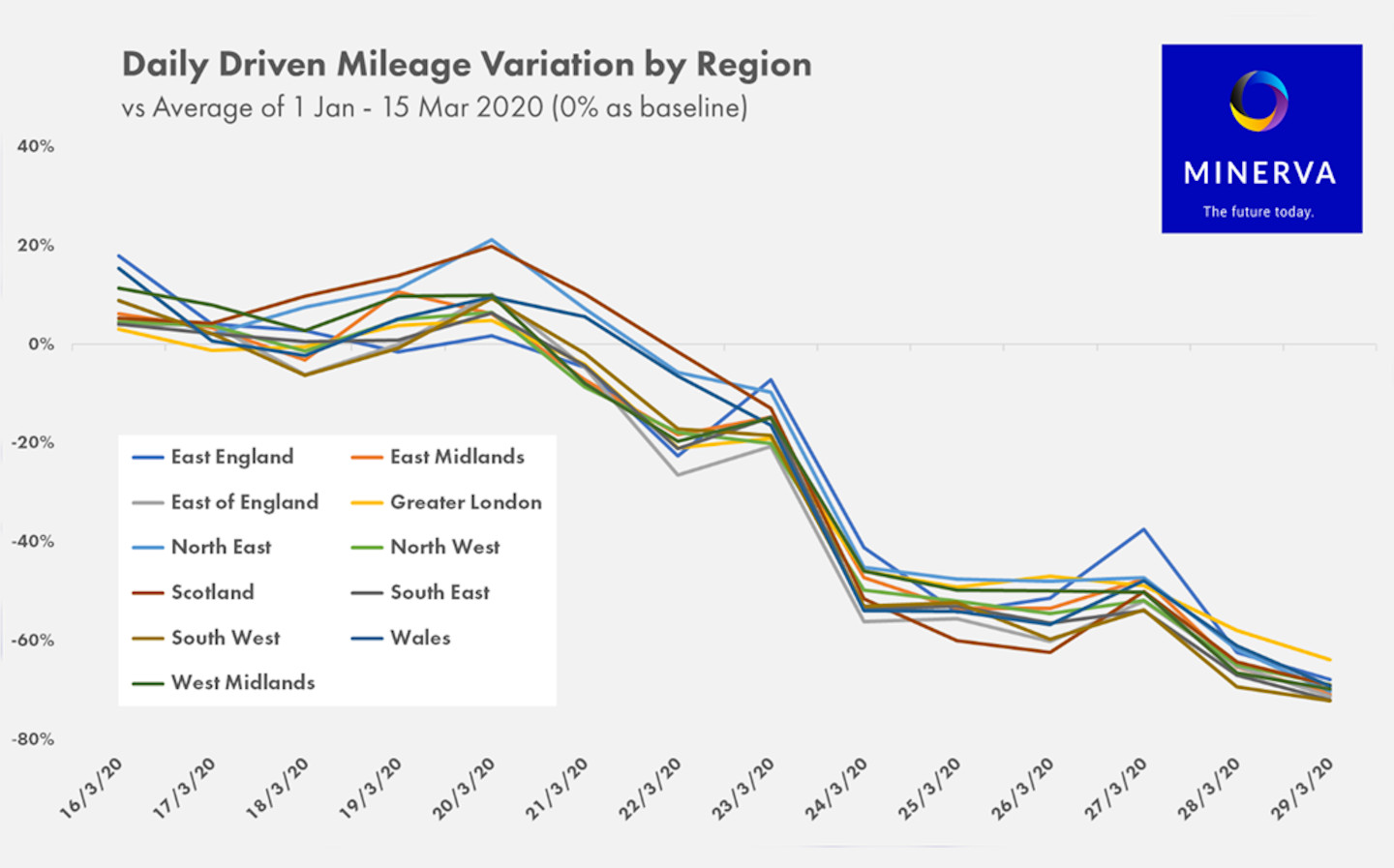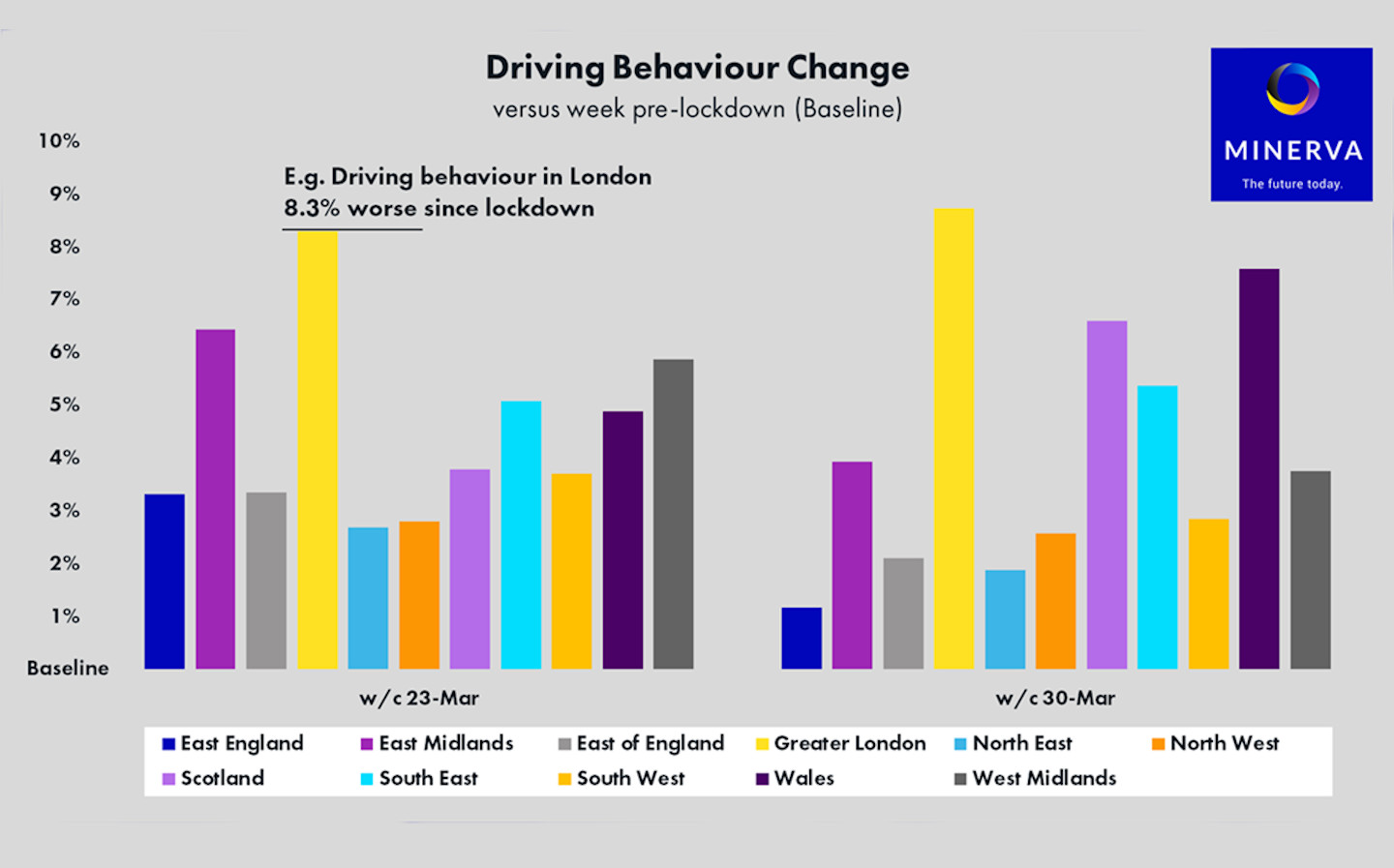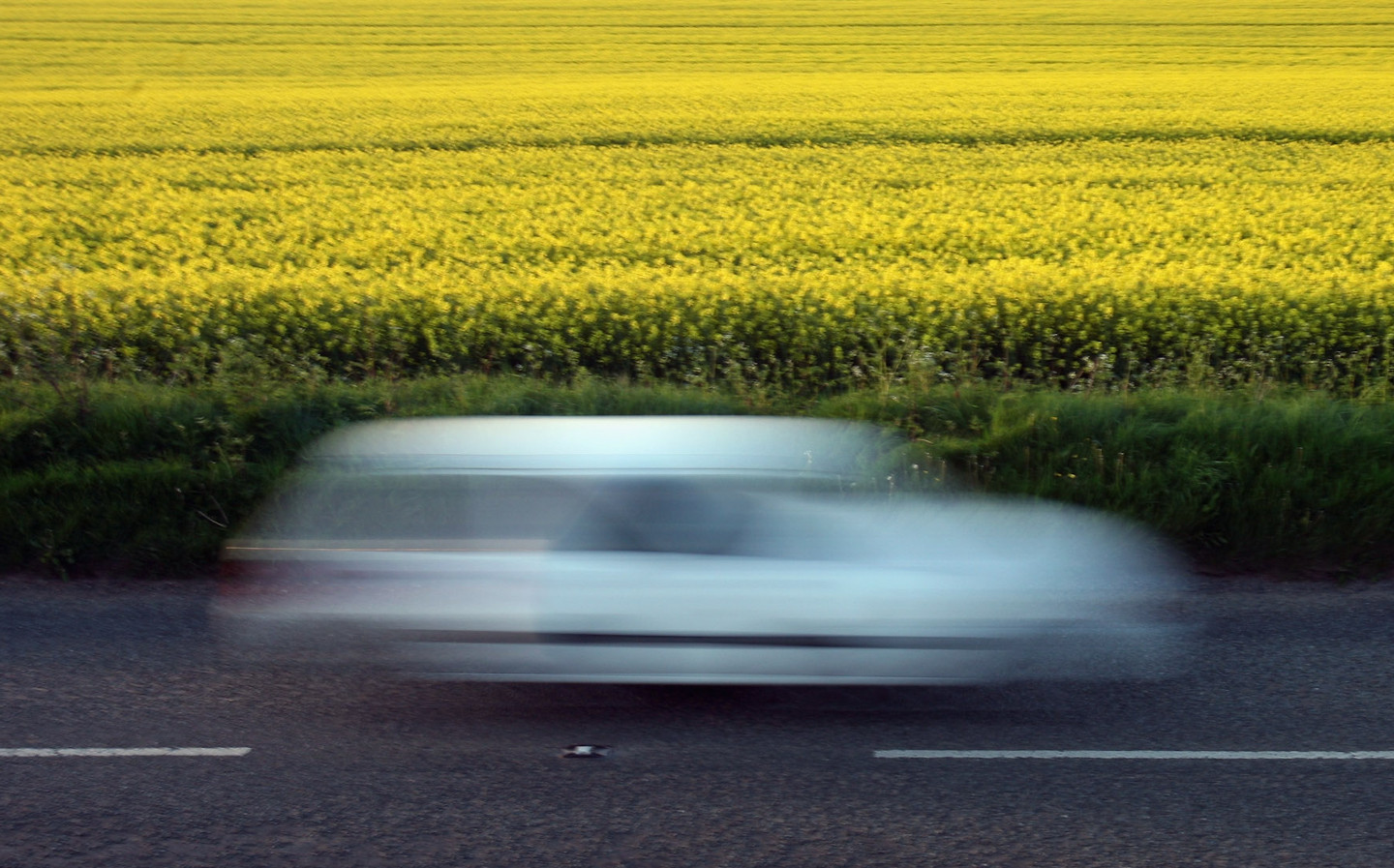Coronavirus: Driver behaviour deteriorates on empty roads
There’s less cars, but that doesn’t mean the roads are less dangerous
THE NUMBER of cars on the roads has decreased by 60% since the Covid-19 coronavirus lockdown was announced on March 22, according to the latest data. But driver behaviour has worsened.
People are currently only allowed to leave their house for one of four exceptional reasons. This should leave the roads largely empty for key workers such as NHS staff, grocery delivery drivers and emergency services. Key workers account for an estimated 22% of the working age population.
We are all also allowed to hit the road for essential supplies and to care for the most at risk members of the population, though the roads are much quieter than usual, and new figures suggest many are seeing that as an excuse to drive recklessly.

The number of interventions made for incidences of speeding increased by 35.6% in the week commencing March 30, compared with a a similar period pre-lockdown, according to data from My Policy Group’s analytics branch, Minerva. “Interventions” include warning alerts sent to drivers for speeding and poor driving. The information is gathered from the black boxes of 85,000 drivers, which is then translated into actionable data. It is worth noting that black boxes are often associated with younger drivers thanks to how much they save on insurance.
To clarify, that isn’t to say the total number of incidents of speeding has increased; it means that the proportion of drivers caught speeding as a share of the total on our roads has risen by 35.6%.
This is an increase on the previous week, commencing March 23, which saw a rise of 12.4% compared with week commencing March 16, before the lockdown was implemented.
The number of insurance claims has fallen in concert with the number of cars on the roads, decreasing by 60%, indicating that the number of collisions on the road has fallen. However, Tassos Anastasiou, a spokesman for My Policy Group, pointed out that at higher speeds, collisions are a lot more likely to be fatal.
The Royal Society for the Prevention of Accidents has previously told Parliament that, at 40mph, nine out of 10 pedestrians will be killed. At 30mph this falls to around half, while at 20mph only one in 10 pedestrians are killed.
“In rush hour traffic, road accidents are generally relatively low-level events, as the large volume of cars on the road make high speed collisions unlikely,” said Anastasiou.
“In the current lockdown, the roads are emptier and we are concerned that drivers’ speeding could lead to an increased number of high-speed collisions. While we are seeing fewer drivers out in their cars, which is to be expected given the government’s instructions, many of those that are continuing to drive are putting their foot down and speeding up.”
London’s empty roads seem to be intoxicating to potential dangerous drivers, with the capital seeing driving behaviour worsen by 8.7% in the week beginning March 30, compared with two weeks before. This is the biggest fall across the county. Second to London was Wales, which saw driving behaviour deteriorate by 7.6% in the same week.
The people of East England have the most to be proud of, with their driving behaviour only decreasing by 1.2%, the least nationwide.

Detective Superintendent Andy Cox, who is the lead for Transport for London’s Vision Zero campaign, told Driving.co.uk earlier this week that “we are seeing less congestion on London’s roads; however frustratingly evidence is emerging that this has led some drivers to drive at very high speed risking their life and that of other roads users.”
He said that police had stopped drivers going at incredibly high speeds, including one person driving at 134mph in a 40mph zone. In a video on his Twitter that now has nearly 100k views, Detective Superintendent Cox pointed out that those involved in fatal and serious collisions require assistance from the NHS, the fire department, and police.
He asked people to spare a thought for the already struggling NHS. “Those involved in serious collisions are likely to end up in hospital, depriving people suffering from Covid-19 of precious NHS resources, precious medical care and potentially hospital beds.”
It’s not a problem confined to the UK. In New York City a millionaire was caught on camera smashing his ultra-rare Gemballa supercar into a parked van while out on the empty urban streets in Hell’s Kitchen. He then drives his seriously damaged vehicle away from the scene before being forced to stop and face the music. The NYPD took the driver into custody at the scene and charged him with operating a motor vehicle impaired by drugs, as well as reckless driving.
Tweet to @KieranAhuja Follow @KieranAhuja
Coronavirus: Police issue stark warning to drivers using empty roads to speed
Coronavirus leads to bigger drop in car sales than after financial crash





